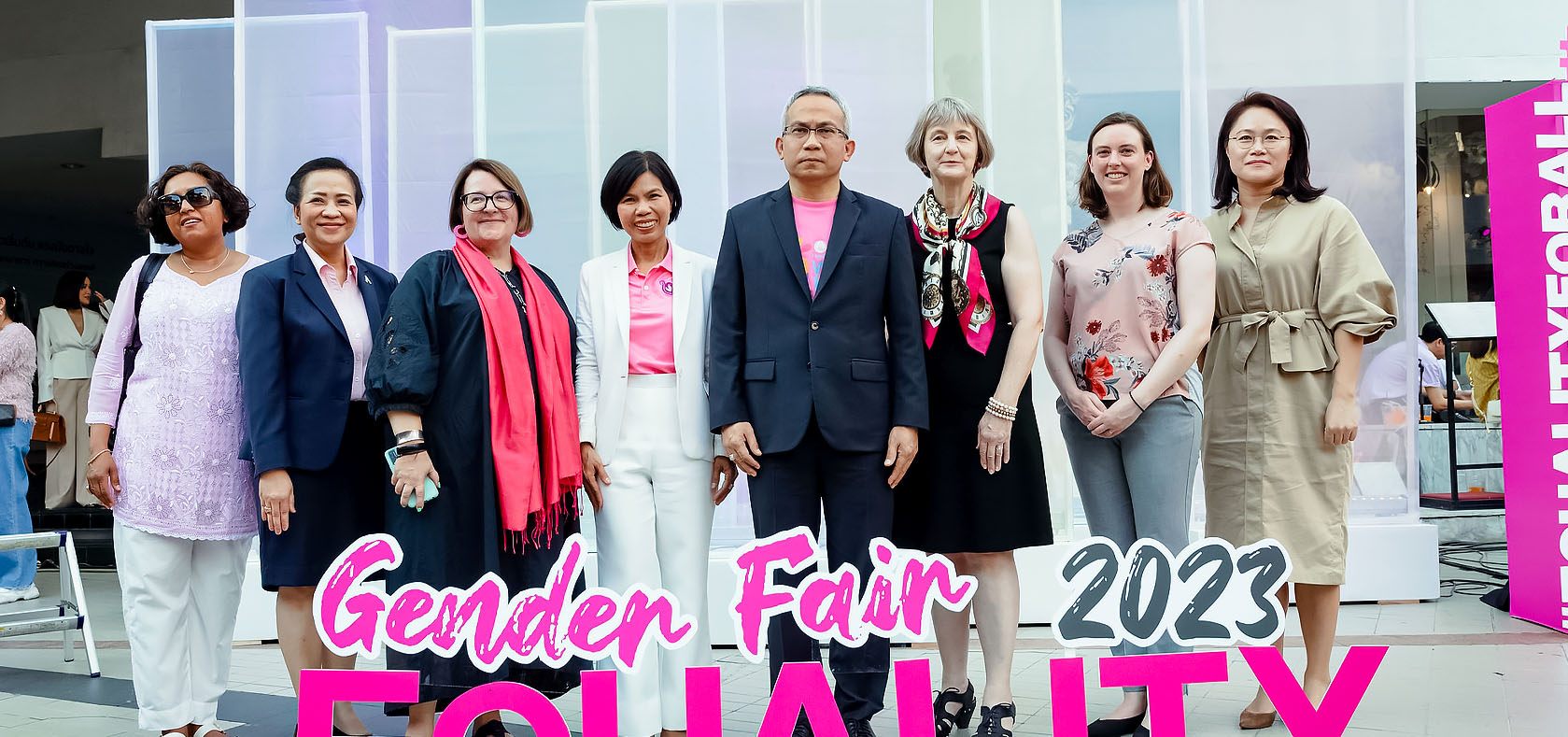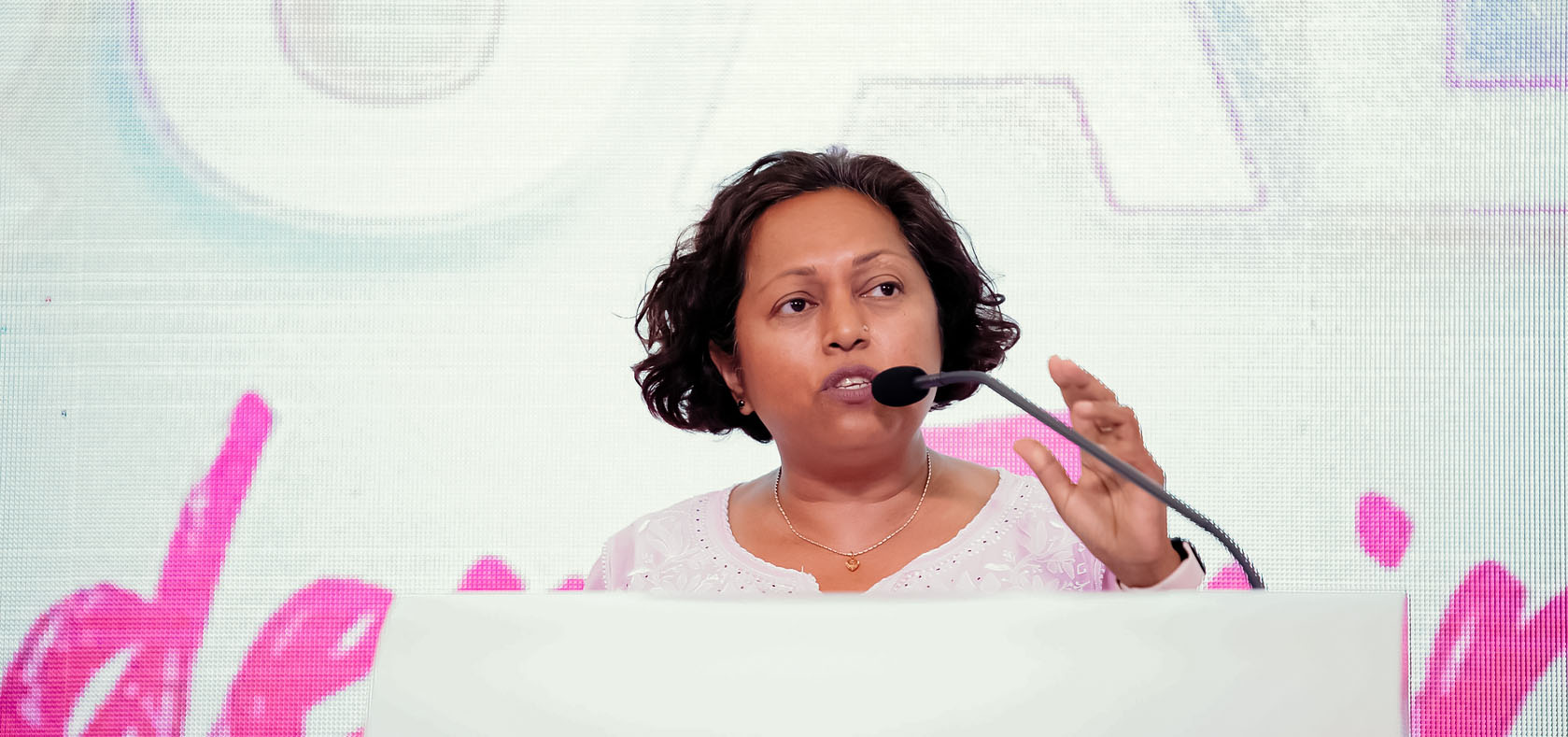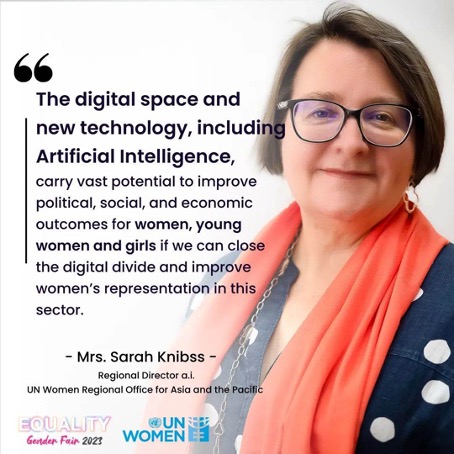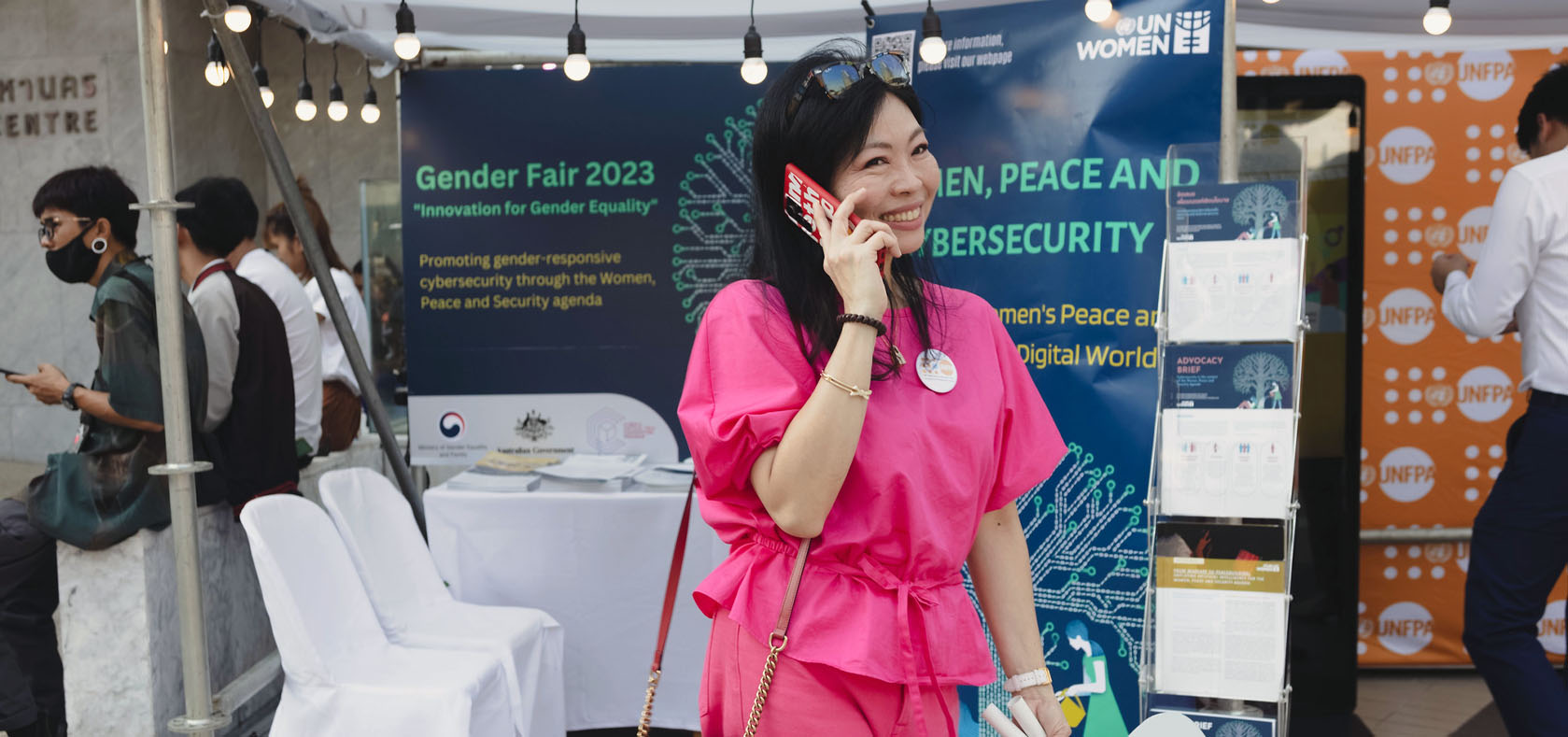DigitALL: Innovation and Technology for Gender Equality — UN Women and the Thai Ministry of Social Development and Human Security host the 2023 Gender Fair
Date:
Author: Alexandra Håkansson Schmidt

Bangkok, Thailand — On 31 March 2023, UN Women Thailand and the Thai Ministry of Social Development and Human Security co-hosted the annual Gender Fair in the Bangkok Art and Culture Centre. The event, organized with the generous support of the Government of Australia under UN Women’s regional project, Women, Peace and Cybersecurity: Promoting Women’s Peace and Security in the Digital World, celebrated women’s achievements and called for action to accelerate gender equality across the country.
Echoing the theme of this year’s International Women’s Day and the 67th session of the Commission on the Status of Women, ‘DigitALL: Innovation and Technology for Gender Equality’, the Gender Fair highlighted the importance of enhancing women’s leadership in technology-related sectors while ensuring that women and girls can engage in digital spaces in a safe manner, free from online harms and threats. The Fair brought together representatives from civil society, the private sector and governments, who recognized women’s contributions to the advancement of transformative technology, digital literacy and gender-responsive cybersecurity. In addition to providing space for numerous organizations to showcase their work, the Fair offered an engaging platform for UN Women to share key publications and takeaways from the Women, Peace and Cybersecurity project.
The Fair opened with an award ceremony to recognize select organizations and networks for their work in promoting gender equality in technology-related fields. UN Women and other speakers then highlighted key topics relating to gender equality in digital spaces. Norul Mohamed Rashid, UN Women Regional Policy Advisor for Governance Peace and Security, emphasized the importance of enhancing collaboration for cybersecurity while ensuring that cyber-related policies and practices are guided by conflict-sensitive, gender-responsive and rights-based principles.
“A whole-of-society approach, which brings relevant actors together, is the most effective way to address common challenges in today’s world. The formulation of laws, policies and the design of new technologies must happen in close dialogue with women’s organizations and representatives, civil society, local institutions, historically marginalized and vulnerable groups, as well as private-sector actors and government bodies,” she stressed in her speech.

Isabella Menin, Thailand’s Miss Grand International 2022, shared some of her experiences of tackling discriminatory gender norms while pursuing a career in economics, having been asked whether she would have preferred working in a more “traditionally feminine field.”
Actress Poi Trichada Petcharat and actor Ahn Bhuvanath Kunpin shared their experiences of being targets of cyber harassment due to their personal backgrounds and gender identities. They described the detrimental impacts that cyber-enabled harms have on women and persons with diverse gender identities and explored collaborative approaches that could help ensure that digital platforms are peaceful and gender-responsive.

Cindy Sirinya Bishop, Thai model, actress and the Regional UN Women Ambassador for Asia and the Pacific, shared her commitment to countering gendered cyber harms and her experiences working as an activist to prevent violence against women through the “Don’t Tell Me How to Dress” project.
All speakers stressed that public awareness needs to be strengthened of the gendered dynamics of cyber-harms and that women’s leadership must be at the core of change-making processes that strive to leverage inclusive and peaceful digital platforms. This is crucial to ensuring that women equally participate in digital processes, from technology development and policymaking to online civic engagement and peace efforts.
In a similar fashion, UN Women Regional Director a.i. Sarah Knibbs noted that “the digital space and new technology, including artificial intelligence, carry the vast potential to improve political, social and economic outcomes for women, young women and girls — if we can close the digital divide and improve women’s representation in this sector.”

This event was organized under the regional project Women, Peace and Cybersecurity: Promoting Women’s Peace and Security in the Digital World. The project, supported by the Governments of the Republic of Korea and Australia, aims to ensure that governments, civil society and cyber defenders have increased access to information and capacity-building support to advance gender-responsive cybersecurity, informed by the commitments to the United Nations Security Council Resolution (UNSCR) 1325. For more information, visit the project webpage